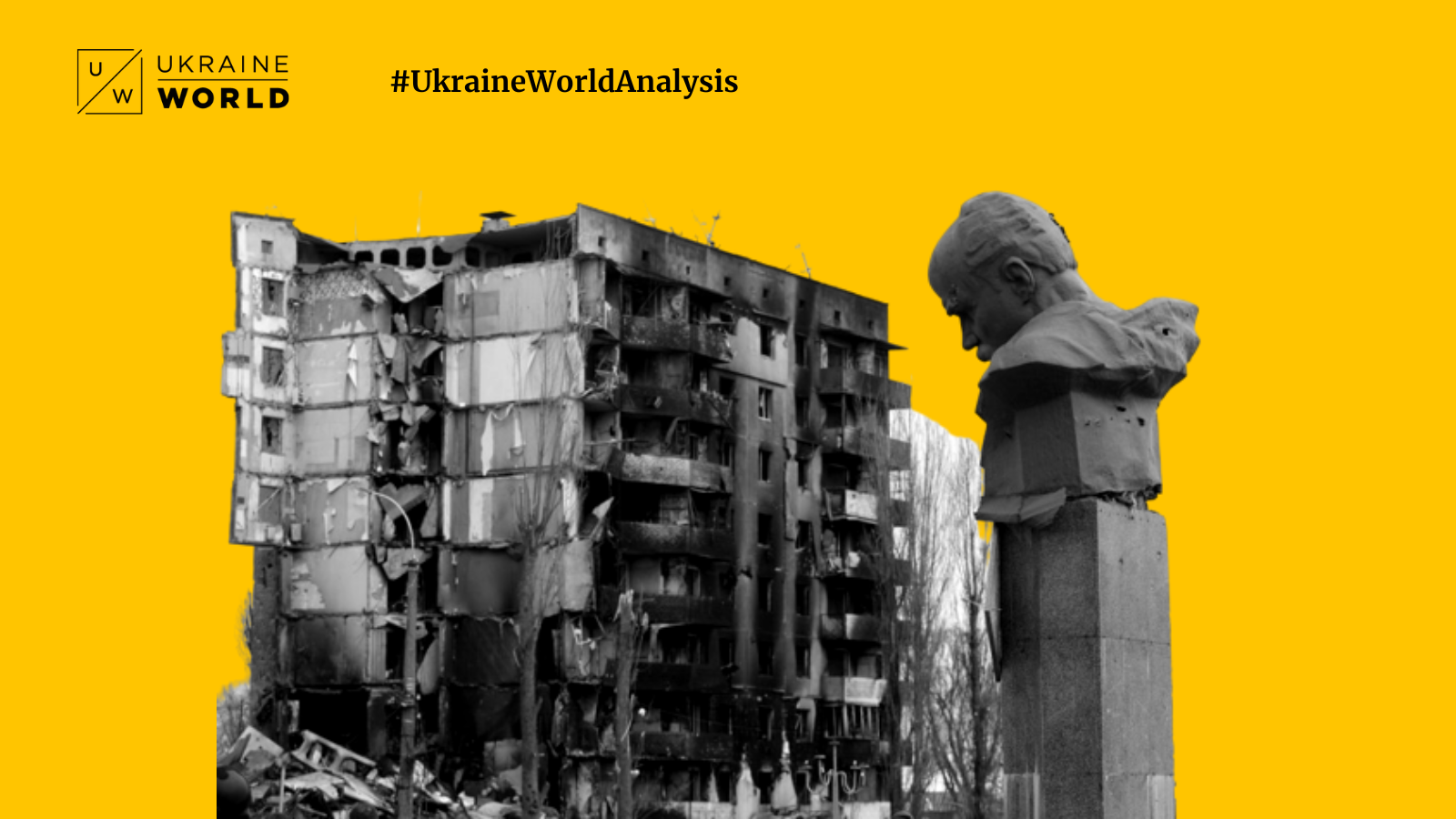UkraineWorld spoke to Volodymyr Datsenko, expert at Transparency International Ukraine.
Key points – in our brief, #UkraineWorldAnalysis:
1. On principles of the plans:
- At this moment, it is difficult to talk about the principles of Ukraine's plan because the initial proposals by the National Council for the Recovery of Ukraine, the leading governmental body working on the recovery of the country, only cover identification of needs and the amount of money needed.
- The latest work papers, prepared by the working groups of the National Council, consist of 24 separate documents totaling more than 2,000 pages. They are devoted to assessing the finances needed for postwar reconstruction, which total more than 25 trillion hryvnias (750 billion USD).
- Plans for reconstruction procedures and for ensuring transparency and accountability for the funds used are at the developmental stage.
2. On postwar reconstruction priorities:
- There have not yet been any principles of prioritization set. There are projects planned for 2022, medium-term projects for 2023-25 and long-term ones for 2025-32.
- Energy efficiency measures and the reconstruction of residential buildings and road infrastructure require the largest amounts of funds.
3. On the nature of reconstruction
We are inclined to consider reconstruction as modernization. There is no point in restoring things to a former condition. Ukraine's housing stock is mostly outdated, and in the face of new challenges and security requirements, we have to focus on new needs.
- Currently, there is no holistic plan, we are at the stage of needs assessment and determining methodology. On the other hand, many countries are interested in direct cooperation with regions and cities.
- There are two paths of reconstruction process: a centralized process in which the central Ukrainian government is responsible for matters, and restoration of individual regions by individual countries. Both options have downsides.
- The country-region partnership model has a significant drawback: the uneven distribution of funds between regions. Some cities may be restored fully, while others might have far worse results due to poor partnership relations, issues with local authorities, poor communication, and other causes.
4. On chances for reconstruction before war ends:
- There are projects which cannot be postponed until the end of the war, such as those concerning the heating season of this year, as well as energy assistance and housing for IDPs. As the war draws to a close, we should focus on large strategic projects and full-scale reconstruction.
5. On mechanisms for recovering losses:
- There are two mechanisms for recovering losses. The first is indemnities against seized assets of the Russian Federation. This depends on the legislation of the states where the assets are seized, and whether local legislation stipulates conditions for the transfer of funds to Ukraine.
- However, there remains no economic blockade of Russia. The EU is not ready to give up Russian energy resources and is limited in its capacity for decisive decision-making. This frozen situation may last until the end of the war. Another mechanism is to apply to international courts for judgments of damages. But this would take years.
6. On Ukraine`s investment attractiveness for private stakeholders:
- Ukraine is an attractive option to consider for investments by virtue of the latent potential of its underdeveloped industries. The country holds many great prospects.
- The only obstacle is the country's problems with its judicial system and legislative protection of investor rights. This barrier prevented the privatization of large state-owned companies at one point. Now we have to see if the government has learned its lesson. Ukraine is a profitable country - close to the European Union with relatively a cheap labor force and a bounty of natural resources.
This material was prepared with financial support from the International Renaissance Foundation.
Daria Synhaievska, analyst and journalist at UkraineWorld
Volodymyr Datsenko, expert at Transparency International Ukraine

